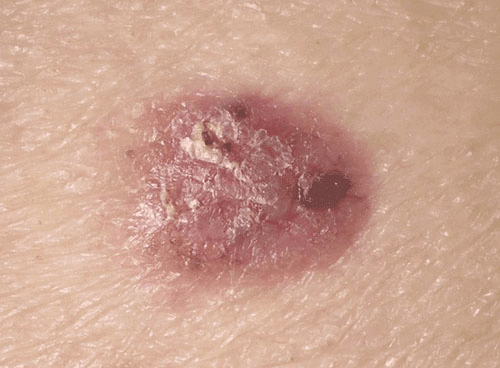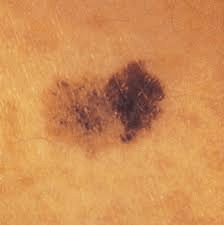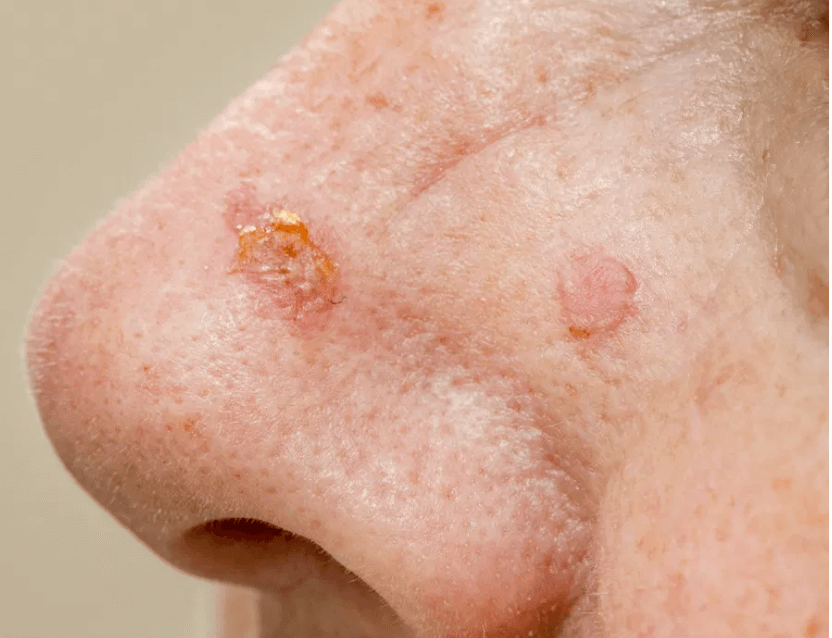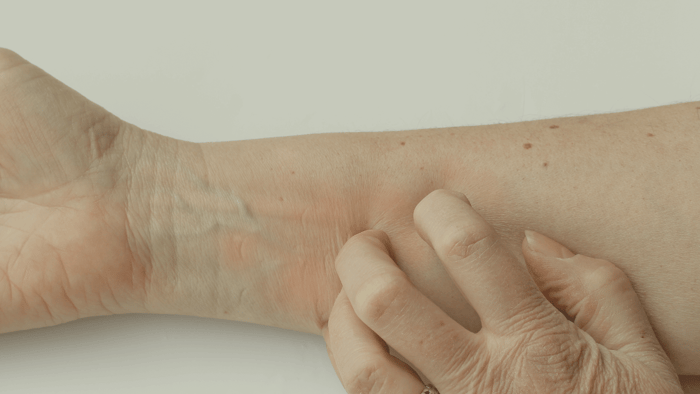What is skin cancer?
Skin cancer is the out-of-control growth of abnormal cells in the epidermis (the outermost skin layer) caused by un-repaired DNA damage that triggers mutations. These mutations lead the skin cells to multiply rapidly and form malignant tumors. The main types of skin cancer are basal cell carcinoma (BCC), squamous cell carcinoma (SCC), and melanoma.
Are you looking to schedule a rapid dermatology appointment at home? Request support from a board-certified dermatologist today with the Modern Ritual Virtual Dermatology program. Questions? Reach out to +1 866 438 6712 or learn more at modernritual.com we are here to help!
Skin cancer is the most common cancer. It affects people of all skin tones, including those with darker complexions. Skin cancer tends to develop in areas that are sun-exposed, such as the face (including lips), ears, arms, and legs. However, skin cancer can also develop in less sun-exposed areas such as under fingernails, between toes, and on the palms of hands, especially in darker skin types. Nearly all skin cancers can be fully cured if found and treated early. Skin cancer is most easily detected through signs of change on the skin. Common symptoms of melanoma to watch for are the ABCDEs of skin cancer. The signs and symptoms of basal cell carcinoma and squamous cell carcinoma are usually different than that of melanoma. Basal cell carcinoma warning signs may be an open sore that won’t heal, reddish patches/irritated areas, a shiny bump or nodule, small pink growth, or scar-like area. Signs of squamous cell carcinoma include: a firm, red nodule, a scaly or crusty lesion with irregular borders, or a painful/itchy skin lesion.
When should itchy skin be a concern for skin cancer?
Although itchy skin can be a skin cancer symptom, itching can be a common symptom of many other conditions, like dry skin, eczema, or an allergic reaction to medicine. Unless the itchiness is long lasting, using moisturizing cleansers, moisturizers with ceramides as well as applying an anti-itch cream or cool compress should help relieve the itchiness.
Itchy skin is linked to the more common types of skin cancer when accompanied by one or more symptoms of skin cancer.
Itchy skin associated with a spot due to skin cancer can be a non-melanoma type, such as squamous cell carcinoma and basal cell carcinoma. For example, basal cell carcinoma can take shape as an itchy raised reddish rash. However, this does not mean that melanoma can not also itch. As an example, melanoma may take the form of an itchy pink or dark spot or mole.

Basal Cell Carcinoma  Melanoma
Melanoma
Skin cancer symptoms
1. Lesions
Skin lesions are areas of skin that have an abnormal growth or look different from the surrounding skin. They are often bumps or patches. They're most common on the face, head and hands, but can truly be in any location. Skin lesions, or actinic keratosis, have a 5-10% chance of turning into squamous cell cancer if left untreated. Lesions that are signs of melanoma may be small with an irregular border and portions that appear red, pink, white, blue or blue-black, or a painful lesion that itches or burns. However you should be just as concerned about a spot that is changing or not healing even if it does not itch or burn. Squamous cell carcinoma lesions may be flat with a scaly, crusted surface. Basal cell carcinoma symptoms include flat, flesh-colored or scaly spots or more rarely scar-like lesions.

This is just one example of what a skin lesion can look like.
2. Changes in the skin
Other changes in the skin that can be symptoms of skin cancer if accompanied with itching is
- a mole that changes in color, size, or feel or that bleeds
- a sore that continually crusts over but doesn't heal
- a pink, pearly bump that bleeds easily
- a rough or scaly skin patch
- new growth
How to prevent skin cancer?
The best way to prevent skin cancer is to cover your arms and legs when in the sun and to use a sunscreen with a sun protection factor (SPF) of 30 or higher. This is because the main causes of skin cancer are harmful ultraviolet (UV) rays and the use of UV tanning beds. Wearing sunscreen daily, sunglasses, a brimmed hat, protective clothing, seeking shade, and avoiding the mid-day sun is the least you can do to keep the likelihood of skin cancer low. Examining your skin to know if you have any suspicious areas every 1-2 months is important to help you detect any important changes or lesions that are not healing.
If you have a spot that's itchy or that just won't go away, you might want to consider booking an In-Person Skin Spot Check.

